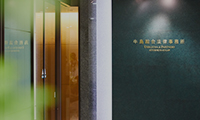The following is a basic description of building leases in Japan, for a foreign company which is considering entering Japanese market, and the terms and conditions thereof.
1. Land Lease and Building Lease
a) In Japan, land and a building are legally separate properties. Therefore, two types of leases are possible in order to lease real estate to launch or open a new office or store in Japan. The first type is where a tenant leases land from a landowner and constructs a building to be owned by the tenant. The second is where the tenant leases a building (or a part of the building) from a building owner. Typically, the latter type of lease is more popular because the initial investment is lower. Recently, this is even more the case due to increased construction costs in Japan.
b) The Act on Land and Building Leases (the “Act”) applies to both types of lease. This Act aims at the protection of tenants which are comparatively in a vulnerable position in the lease market compared to landlords, and therefore, there are many provisions in the Act which a landlord cannot be exempted from even if the tenant agrees. We describe the details of the Act in the respective sections below or articles which we will upload in the future. Please note that the Act does not apply to land leases which are not intended to be in conjunction with building ownership, e.g., land lease for a parking lot.
c) The following is the trend of basic terms and conditions of building leases, which make up the majority of real estate leases of commercial tenants in Japan who need to lease with respect to buildings (including a part of a building) in Japan.
2. Trend of Basic Terms and Conditions
(1) Type of Lease
a) Under the Act, there are two types of building leases. One is a renewable building lease and the other is fixed term building lease.
b) Renewable building lease: the lease is basically renewed upon the expiration of lease term on the same terms and conditions. In order for a landlord to reject renewal, (i) notice of non-renewal is required six (6) months prior to the expiration of the lease term, and (ii) justifiable reason for not renewing the lease is also required (Article 26 and 28 of the Act). The court tends not to find such justifiable reason easily under precedents. These articles 26 and 28 of the Act are compulsory provisions and a landlord cannot be exempted even by an agreement with a tenant.
c) Fixed term building lease: such lease is not renewed and terminates upon lease expiration. If the parties intend to continue the lease, they need to enter into a new lease agreement. This type of lease was newly established in 2000 by the amendment to the Act.
d) As described above, generally, renewable building leases are better for tenants which desire to continue the lease. However, after 2000, landlords have increasingly requested that tenants enter into fixed term lease agreements and therefore, currently, most new building lease agreements are fixed term building lease agreements irrespective of use of office or use of opening stores.
(2) Rent
a) Lease for office use: rent is usually a fixed amount (fixed rent).
b) Lease for commercial facility: rent can be either fixed rent or floating rent (also called percentage rent), the amount of which fluctuates in accordance with the monthly sales amount of the tenant. Especially, when the tenant leases a building to open a store in a shopping mall, rent tends to be floating rent or a hybrid of fixed and floating rent. When a tenant opens a free-standing store, rent tends to be fixed rent, but the amount of fixed rent is liable to be several times higher than that of an office lease.
(3) Term of Lease
a) Formerly, the lease term for many office use leases (that were usually renewable building leases) was two (2) years, assuming that the leases would continue to be renewed upon expiration. However, cases where parties set the lease term for around 5 years even for office use have been increasing in accordance with an increase of the fixed term building lease.
b) In case of a lease for a commercial facility, the lease term is commonly from five (5) years to ten (10) years.
(4) Security Deposit
a) It is common for landlords to request tenants to provide a “security deposit” (which is sometimes called “guarantee money”) in order to secure the payments of rent or other debts owed by the tenant to the landlord.
b) The amount of security deposit is usually from six-months rent to twelve months rent.
c) The security deposit is returned to the tenant after the lease terminates and the tenant completes the vacation of the leased property and the fulfillment of other obligations.


